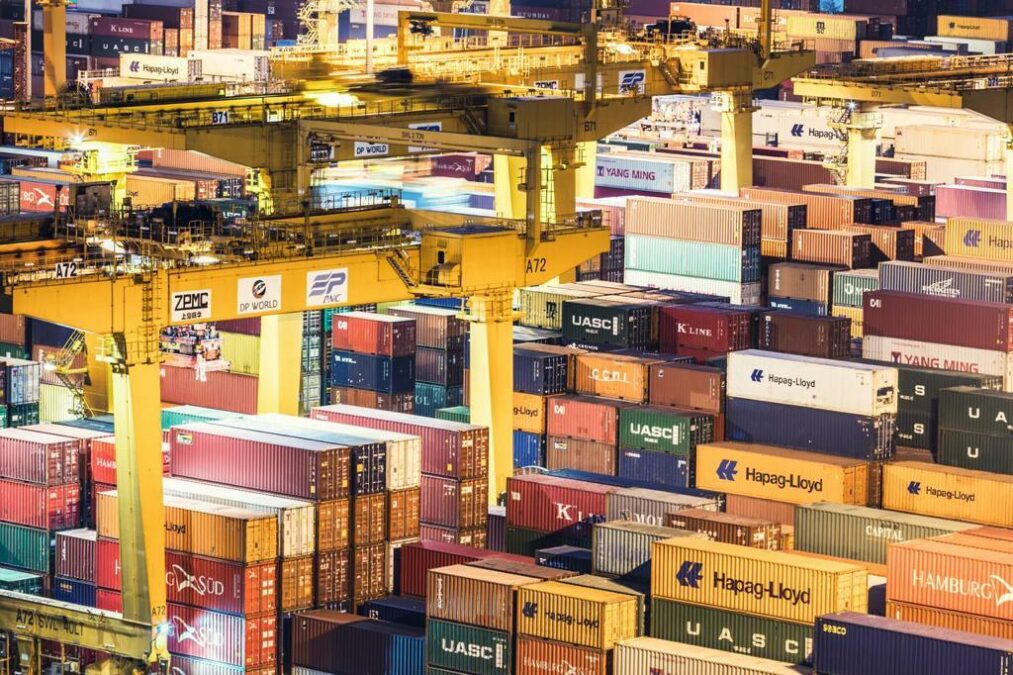Dubai, UAE – The industrial sector is the backbone of a nation’s economy. It fuels growth, innovation, and ultimately, societal well-being. But what happens when the flow of essential materials and components gets disrupted?
This is the question a new report by Oliver Wyman, a global management consulting firm, asks about the Gulf Cooperation Council (GCC) countries. Titled “Industrial Supply Chain Resilience: GCC Preparedness Amid Global Disruptions,” the report highlights the urgent need for GCC nations to bolster their industrial supply chains in the face of a constantly shifting global landscape.
The report paints a clear picture of vulnerability. Recent events like the COVID-19 pandemic and climate disasters have exposed the fragility of global supply chains. When companies are overly dependent on a small number of countries for their production and essential resources, any problem in one area can devastate the rest of the globe. For instance, the concentration of critical minerals like cobalt and copper in a handful of countries poses a significant risk.
This vulnerability is particularly concerning for GCC countries currently embarking on large-scale industrialization initiatives. Their plans heavily depend on a steady influx of key materials – from transformers and desalination equipment to essential metals and minerals.
The report reveals a sobering reality: a significant portion of these critical supplies come from just a few countries. This over-dependence leaves GCC economies exposed to potential supply shortages and price fluctuations.
“As GCC countries scale up their economic diversification plans, it’s vital that they redouble their efforts to increase supply chain resilience,” emphasizes Frederic Ozeir, Partner and Head of Automotive and Manufacturing Industries IMEA at Oliver Wyman. Heeding this call is critical to ensure the smooth functioning of all sectors and safeguard national security in the event of unforeseen supply chain disruptions.
Fortunately, several GCC countries have already begun taking action. Saudi Arabia launched the Global Supply Chain Resilience Initiative to attract investments and position itself as a hub for leading industrial companies. The UAE, meanwhile, is focusing on strengthening its food supply chains through local production initiatives, logistics hubs, and advanced technologies.

The report goes beyond identifying the problem; it offers a roadmap for building resilience. Here are five key actions GCC countries can take:
- Developing a National Supply Chain Resilience Strategy: This strategy should integrate seamlessly with national industrialization agendas, prioritizing the most critical components.
- Creating a Collaborative Governance Framework: Effective supply chain resilience requires a unified approach. It is crucial to bring together government agencies, private sector players, and industry experts.
- Leveraging the Private Sector: The private sector plays a vital role in supply chain management. GCC countries can incentivize private companies to invest in local production and diversification initiatives.
- Building Supply Chain Resilience Capabilities: Investing in expertise and infrastructure will enable GCC countries to identify better, assess, and mitigate supply chain risks.
- Encouraging Technology Adoption: Advanced manufacturing technologies can significantly improve efficiency and flexibility within supply chains. GCC countries can introduce policies that promote the adoption of these technologies.
The report concludes by stressing the importance of a holistic approach. While localization efforts are valuable, they should be combined with other strategies like near-shoring (sourcing from geographically close countries) and international partnerships. This multi-pronged approach will ensure adaptability and responsiveness in a continuously evolving global environment.
By implementing these recommendations, GCC countries can forge more vital, resilient industrial supply chains. This will not only safeguard their national industrial growth but also lay the foundation for a more secure and prosperous future. The report serves as a valuable resource for GCC governments and private sector leaders seeking to navigate the complexities of the global marketplace and build a future where industry can truly thrive.
In conclusion, Oliver Wyman’s “Industrial Supply Chain Resilience: GCC Preparedness Amid Global Disruptions” report paints a compelling portrait of an urgent need for action. The GCC’s ambitious industrialization plans hinge on a robust and adaptable supply chain, yet current vulnerabilities leave it exposed to external shocks.
The report serves as a clarion call, urging GCC countries to move beyond rhetoric and implement a comprehensive strategy for building resilient industrial supply chains. This strategy should be collaborative, bringing together government bodies, private sector leaders, and industry experts. By fostering knowledge sharing and open communication, GCC countries can develop a holistic approach that prioritizes critical components and integrates seamlessly with national industrialization agendas.
Additionally, leveraging the expertise and resources of the private sector is crucial. Incentivizing local production, diversification initiatives, and investments in advanced technologies will empower GCC countries to take greater control of their supply chains.
The road to resilience will be dynamic. It will require continuous monitoring, risk assessment, and adaptation. Embracing a culture of innovation and agility will be paramount. By fostering an environment that encourages experimentation with new technologies and near-shoring strategies, GCC countries can build a buffer against unforeseen disruptions.
Ultimately, the success of the GCC’s industrial ambitions rests on a resilient supply chain foundation. By prioritizing these actions and embracing a forward-thinking approach, GCC countries can safeguard their national security and economic prosperity and emerge as leaders in a new era of global manufacturing. The time for action is now. By seizing this opportunity, GCC countries can forge a stronger path towards a future where industry flourishes, driven by a robust and adaptable supply chain network.








